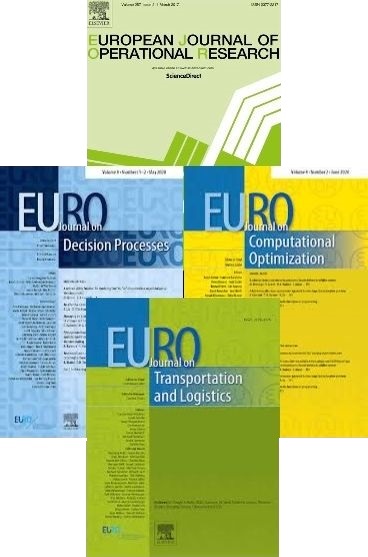CALL FOR PAPERS
Special issue on Integration of Human Factors and Ergonomics (HF/E) in Transportation and Logistics
Guest Editors: Nabil Absi, Valeria Borodin and Diego Cattaruzza
- Deadline for submission: May 15, 2021
Being primarily focused on operations management, the fields of transportation and logistics have so long undervalued and neglected the role of Human Factors and Ergonomics (HF/E) in their environments. In the actual era of sustainable development and digital transition, the human beings and their welfare deserve to be at the heart of current changes towards sustainable transportation and smart logistics.
In the 2000s, the International Ergonomics Association (IEA) proposed a widely adopted definition of ergonomics (or human factors), as "the scientific discipline concerned with the understanding of interactions among humans and other elements of a system, and the profession that applies theory, principles, data and methods to design in order to optimize human well-being and overall system performance".
This special issue aims at supporting the consideration of human factors in logistics and transportation, by encouraging contributions that:
- propose innovative OR-friendly approaches dedicated to modeling ergonomics aspects and solving the corresponding problems,
- consider explicitly the human factors in transportation and logistics problems and in their resolution,
- emphasize the significant impact of human factors on the performance of transportation and logistics systems,
- address original real-life and human-centered applications of OR in transportation and logistics.
Topics of interest
Papers submitted to this special issue deal with human-aware transportation and logistics problems. Human-oriented issues should refer to the following three HF/E domains distinguished by the IEA:
- Physical ergonomics (i.e., factors related to anatomical, anthropometric, physiological and biomechanical human characteristics): e.g., working postures, materials handling, repetitive movements, musculoskeletal disorders, workplace layout, safety, energy expenditure, fatigue, health.
- Cognitive ergonomics (i.e., factors related to mental processes): e.g., learning/forgetting effects, skills, work stress.
- Organizational ergonomics (i.e. factors related to socio-organizational aspects of a system): e.g., design of working times, workforce staffing, crew resource management, turnover, equity.
The considered fields of transportation and logistics include (without being limited to): vehicle routing, city logistics, maritime and port logistics, railway transportation, healthcare logistics, warehouse management, airline crew scheduling.
Manuscript Preparation and Reviewing
Prospective authors are asked to follow the journal’s guide for authors and submit their papers via the editorial site (https://www.editorialmanager.com/jtl/default.aspx). Please select "Human Factors and Ergonomics" as the "Article Type" during the submission process. Submitted papers should not have previously been published nor be currently under consideration for publication elsewhere.
Submitted papers will undergo a regular review process according to the high standards of EJTL and should comply with the usual editorial policy of the journal

This work is licensed under a Creative Commons Attribution-ShareAlike 3.0 International License and the GNU Free Documentation License (unversioned, with no invariant sections, front-cover texts, or back-cover texts).
